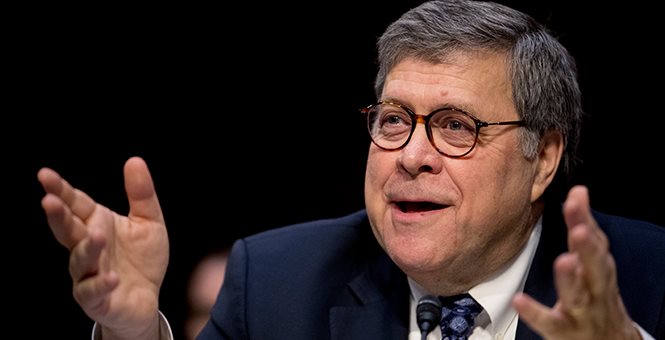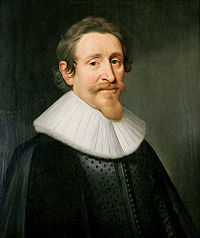Not every religion enables self-control
Years ago I saw a sign in an office kitchen: “Your mother doesn’t work here; please clean up after yourself.” It’s not hard to imagine the back story: otherwise-responsible adults (they were holding down jobs, after all) leaving dirty cups in the sink. Somebody else will do it.
In the big picture, that particular neglect is trivial. But it’s on a continuum with a more serious attitude which drives behaviors that bring down nations, or, at least, generate unnecessary pain and devastation.
 In this series we’re highlighting an address at Notre Dame Law by U.S. Attorney General Bill Barr. Last time, we treated his observation about the necessity of religion (read biblical morality) and its companion, self-government, to sustain freedom.
In this series we’re highlighting an address at Notre Dame Law by U.S. Attorney General Bill Barr. Last time, we treated his observation about the necessity of religion (read biblical morality) and its companion, self-government, to sustain freedom.
But what is self-government? Many people read it as systems for running a representative republic. After all, that’s what was happening at the founding of the new nation. But that’s not the definition Barr is using. He’s talking about “the ability of each of us to internally govern ourselves.” Of course, “govern” especially as in “restrain.”
Noah Webster includes the following definition in his 1828 Dictionary: “To control; to restrain; to keep in due subjection; as, to govern the passions or temper.” Without restraint, the human defaults to selfishness, exactly the opposite behavior by which a society can flourish. Life in community requires forbearance. And, to paraphrase James Denny, No one can be magnanimous and self-indulgent at the same time.
Virtue requires religion
Man’s natural state defaults to the self. One could argue that’s why there are kings and emperors, those with the authority to make citizens behave. But the founders were forming a free nation. No potentate would have power to enforce top-down virtue. As Barr notes,
So the Founders decided to take a gamble. They called it a great experiment. They would leave “the People” broad liberty, they would limit the coercive power of the government, and they would place their trust in self-discipline and the virtue of the American people. In the words of Madison, “We have staked our future on the ability of each of us to govern ourselves …”
In a free republic, those restraints could not be handed down from above by philosopher kings. Instead, social order must flow up from the people themselves – freely obeying the dictates of inwardly-possessed and commonly-shared moral values. And to control willful human beings, with an infinite capacity to rationalize, those moral values must rest on authority independent of men’s wills – they must flow from the transcendent Supreme Being.
Virtue requires religion but not all religions are created equal. To the question “How to be good?” they have different answers. In fact, the differences between Christianity’s answers and the answers of other religions are incompatible.
 Only Christianity points to gratitude for Christ’s finished work as a motivation for virtue. Apart from that unique impetus we are left with legalism or fear. Here’s another huge distinction: the Christian is empowered by God’s Holy Spirit, a divine presence not available outside a personal relationship with Christ. “The fruit of the Spirit is … self-control” Galatians 5:23.
Only Christianity points to gratitude for Christ’s finished work as a motivation for virtue. Apart from that unique impetus we are left with legalism or fear. Here’s another huge distinction: the Christian is empowered by God’s Holy Spirit, a divine presence not available outside a personal relationship with Christ. “The fruit of the Spirit is … self-control” Galatians 5:23.
The depravity of man
Freedom requires self-control, self-control requires religion, but not just any religion. One system claims ultimate truth, offers real forgiveness, includes divine power to achieve self-control. This is not to say that a non-Christian cannot achieve self-control to some degree, but without Christ’s redemption and the indwelling Spirit, self-control at a level necessary for national flourishing is almost impossible to sustain.
Like the inventors of democratic capitalism (who, as Michael Novak puts it, believed that “public enforcement of virtue is neither desirable nor possible,”[i]) the founders believed in the depravity of man. Humans cannot be counted on to wield power well. Thus, as much as possible, power would devolve to the individual. Government would have to begin in the heart. That requires religion, and religion implies a moral standard. Today, as Barr noted, that standard has eroded: “Modern secularists dismiss this idea of morality as other-worldly superstition imposed by a kill-joy clergy. But in fact, Judeo-Christian moral standards are the ultimate utilitarian rules for human conduct.”
Biblical moral precepts are highly practical
Biblical principles lead to human flourishing. Violating them leads to suffering and misery. That we have come to a place where those principles are regarded as oppressive, a sort of pre-Enlightenment throwback, is a pathetic testimony to how far we have sunk. The West finds itself mired in a pit of its own making, preferring the low swamp of self-indulgence to the high road of wisdom.
But [moral precepts] also include the guidance of natural law – a real, transcendent moral order which flows from God’s eternal law – the divine wisdom by which the whole of creation is ordered. The eternal law is impressed upon, and reflected in, all created things.
From the nature of things we can, through reason and experience, discern standards of right and wrong that exist independent of human will.
They reflect the rules that are best for man, not in the by and by, but in the here and now. They are like God’s instruction manual for the best running of man and the best operation of human society.
Religion promotes morality and virtue by affirming the reality of a supreme law giver: A holy God and a real created order.
The Founding generation were Christians. They believed that the Judeo-Christian moral system corresponds to the true nature of man. Those rules speak to man and fulfill man, both in his private spiritual life and in his communal life. Those moral precepts start with the two great commandments – to Love God with your whole heart, soul, and mind; and to Love Thy Neighbor as Thyself.
 God is necessary for a nation to thrive
God is necessary for a nation to thrive
Hugo Grotius (1583-1645), the Dutch theologian, lawyer and educational reformer says it well:
He knows not how to rule a kingdom, that cannot manage a province; nor can he wield a province, that cannot order a city; nor he order a city, that knows not how to regulate a village. Not he a village, that cannot guide a family; not can that man govern well a family that knows not how to govern himself; not can he govern himself unless his reason be lord, will and apatite be vassals; nor can reason rule unless herself be ruled by God, and be obedient to Him.
- Gary Brumbelow. Scott Allen contributed to this post.
[i] The Spirit of Democratic Capitalism, p. 13.






